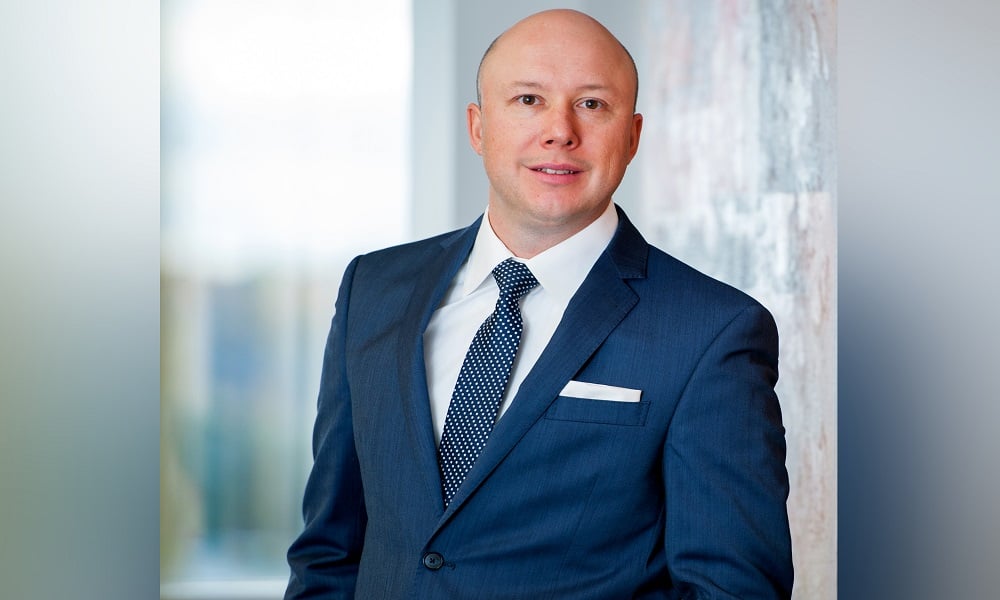Given the influx of private and alternative investments today, advisor Mitchell McLean says the job of determining which investment is right for each investor is more critical than ever

As additional private and alternative investments become more readily available to retail investors, the challenge of determining the best fit for clients has never been greater. That’s one of the biggest changes Mitchell McLean, an investment advisor at Mandeville Private Client, has observed over the course of his 13-year career. After moving to Mandeville in 2016, McLean was able to expand his offerings thanks to the firm’s access to private investments. Yet he has always cleaved to the idea that just because something is available, that doesn’t mean it’s right for all investors.
“There is a big change in the types of investments available to clients, which is a good thing,” McLean says. “There are many advantages to more choice, whether ETFs or private investments. But not all investments are created equal. Part of my job is to go through different investment opportunities and be the gatekeeper for clients – look at the investments to see if they would be a good fit.”
McLean considers himself a lifelong investor, having saved money from a young age to put toward his future. Even as a student at the University of Ottawa, he used his investments to help pay his tuition. The success he achieved, along with some famous inspiration, set him on the path to becoming a financial advisor.
“I was always a big fan of Warren Buffett and followed him even at young age,” McLean says. “I was fascinated with how he picked good companies and stayed with them for the long run. I saw the benefits of that. Following him, plus my own investing success, continued that momentum to the point where I wanted to branch off and help others do it as well.”
McLean entered the industry in 2006 and earned his CFP in 2010, something he considers crucial to his practice. “It’s important to understand every client, what their goals are, their ongoing liquidity needs and how comfortable they are with investing,” he says. “It always starts with a plan. Anytime anyone invests with us, they benefit from our wealth creation process and receive a customized financial plan, because how can you invest someone’s money properly without knowing what they’re investing for?”
As he progressed in his career, McLean began to specialize with three types of clients: medical professionals, business owners and people looking to retire. One of his areas of expertise is incorporation.
“Some clients have corporations – I have my own corporation, and I work with individuals to determine if incorporating makes sense,” he explains. “If it does makes sense, there’s a lot of strategic tax planning that needs to be considered.”
Within his areas of expertise, McLean developed an approach he calls 3D Tax Planning, which he puts all clients through. “The three Ds are defer – any time you can pay money later, you will save; deductions – seeing what clients can get from their income; and divide – where income splitting or using a corporation makes sense. Once I establish that, I can see what investments make sense.”
McLean acknowledges that this process wouldn’t be possible without his team. “Finding good team members who are experts in areas that complement my expertise is important,” he says. “I have a great team – it’s important to put people in the right role and have them excel to help our clients.”
When McLean made the move to Mandeville, it opened access to different investments. “People want to preserve and grow their capital with minimal volatility, and having access to alternative investments that have the potential to provide that for my clients is rewarding,” he says. “That is what attracted me to Mandeville.”
The move also introduced McLean to Mandeville chairman and CEO Michael Lee-Chin, who advised him to find a role model, copy their recipe for success and stick to that process. McLean took the advice to heart and now passes it on.
“My advice would be to identify and put the time into your process,” he says. “Find what works and stick with it, and communicate the message to your clients. You always have to evolve, but I would say to add on as opposed to developing a new process.”



